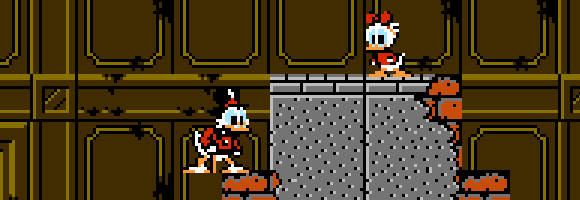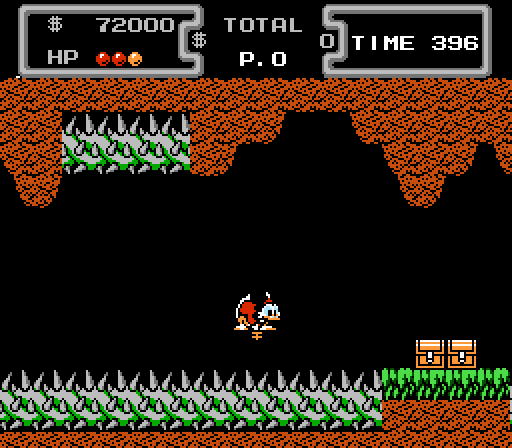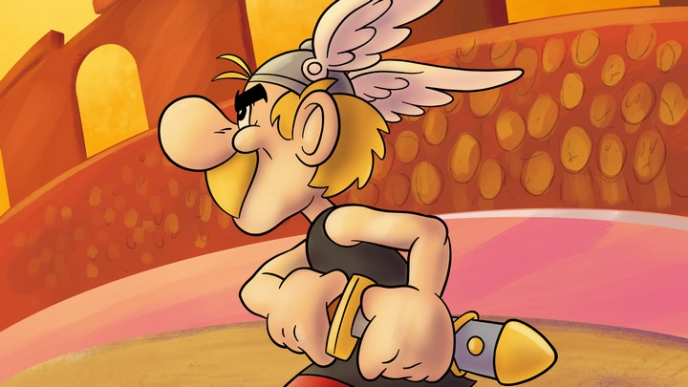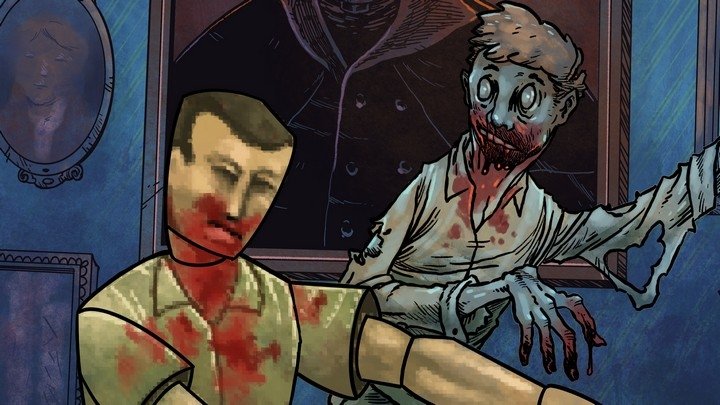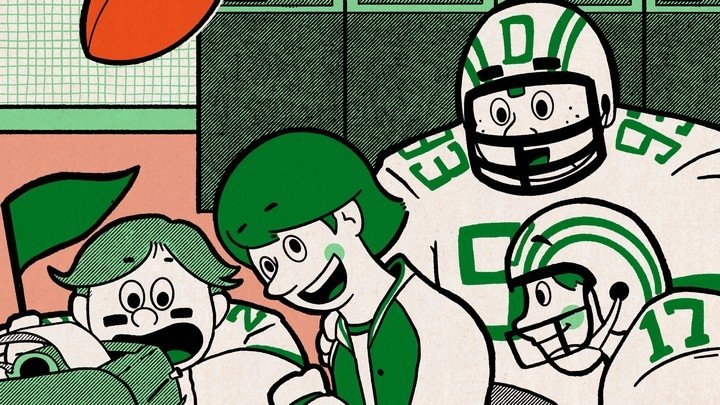My First Time: DuckTales
In the My First Time series, we tearfully confess the shameful gaps in our personal gaming heritage. No one's perfect, and there are only so many hours in the day -- we can't play everything. Here, we try to fill in the holes by spending time with the ones that got away.
DuckTales (NES, Capcom)
I'm not really sure how I've missed out on DuckTales all these years. Widely regarded as an NES classic, with visual design by Keiji "Mega Man" Inafune and one of the most beloved tunes ever to see the light of day in the 8-bit era, DuckTales seems like one of those games everyone has played and everyone loves... except me. I guess I was just a little too old to care about the Disney Afternoon by the time this one rolled around -- not to mention that I had been left deeply unimpressed with its apparent (but not really) predecessor, Mickey Mousecapade. So, today marked my very first session with this soon-to-be-remade adventure.
I went into DuckTales knowing, basically, three things:
- Pogo stick
- Cane golf
- OMG the moon theme
And, as such, my first few minutes with the game proved to be shockingly frustrating. Despite his much-vaunted skills, Scrooge lacks direct, easily accessible offensive capabilities. You can't simply jump on an enemy's head the way Mario does, as you'll take damage when you land. And simply tapping the action button doesn't cause him to swing his cane, either. It's a surprising design choice, but I assume it has something to do with the limitations of the license. Scrooge isn't a combat-oriented kind of character, and Disney imposes massive restrictions on the use and presentation of its characters. Most likely the entire game was built around what Scrooge wasn't allowed to do.
With a little experimentation, though, I started to figure things out. I realize that in the olden days, I would have spent 15 minutes poring over the manual during the car ride home and therefore would have gone into the game fully equipped with the knowledge to properly wield the power of McDuck, so I don't hold the slightly unintuitive offensive mechanics against the game. It was crafted with the expectation that players would have been able to read the instructions first, not fumble around with a vaporous digital file divorced of its proper context (shh, don't tell). Fair enough.
Scrooge's primary mode of attack is to leap with his cane leading. Not unlike like Link's downward stab in Zelda II, but it's slightly more complicated in this case. You can't simply press down as you jump to pull this off as you do in Zelda II; you have to hold down and the attack button as you jump. It's a curiously complex control scheme for an NES game, especially given how limited Scrooge's available actions are.
Yet after playing around with the game, I think Capcom made the correct choice in adding such complexity to Scrooge's basic skill. Because the pogo-jump is so powerful, being able to whip it out effortlessly would make the game too easy. Not only does the pogo attack defeat all but a handful of foes with a single attack, it also allows Scrooge to leap about twice as high as his standard jump does, covering far more ground in the process. On top of that, it cracks open treasure chests and certain kinds of rock as well. If you could do all of that without a second thought, DuckTales would become almost laughable in its easiness.
Instead, the pogo leap requires some consideration. You can't simply go bounding around without a care, because hazards lurk all around: Spikes ceilings, respawning aerial foes, loose-packed snow that'll trap you briefly, and more. By creating these pogo-oriented hazards and requiring players to press a slightly complex combination of buttons in order to go on the offensive, DuckTales becomes a game of skill and finesse that belies its seemingly simple cartoon-based nature. This is good stuff.
But really, the game didn't click for me until I started roaming through the interconnected and somewhat nonlinear caverns of the Amazon and backtracked to a space I had previously bypassed. There, I encountered a tall grey statue that begged me to leap on top of it but was too high for Scrooge to reach even with his pogo bounce. So I pushed against a nearby barrel that looked for all the world like a Mega Man E-tank (except orange) and noticed Scrooge changed his posture. A tap of the attack button and he whacked the barrel, which went sliding toward the statue. Not only did this allow me to reach the statue's upper edge (thereby giving me a path to a hidden treasure chamber by bouncing into the scoreboard and traveling "over" the playable space), it also revealed the intricate nature of the alternate McDuck attack.
Again, Disney probably didn't want Capcom to turn Scrooge's cane into a weapon in and of itself, so you can't simply wander around smacking things with his walking stick. Instead, you can only shift into attack position by pressing against a static object. This causes Scrooge to rear up into a striking position, and pressing the button once he changes posture causes him to whack the object (jarring him silly if it's non-interactive scenery, but more often than not launching a brick or revealing hidden treasure). Flying bricks and rocks make very handy and very deadly projectiles, but as with the pogo jump, the added complexity of the action forces you to think about how you use it. You can't just whip it out. There's a certain time investment required for each of these actions that sets it apart from simple arcade twitch action.
But then, DuckTales isn't really an arcade game. It seems like it at first glance, but the play mechanics require a more methodical touch. On top of that, the seemingly straightforward levels contain myriad secrets that you can only uncover through experimentation and exploration. If I were to peg DuckTales as belonging to any one particular genre or school of game design, I'd put it in the same family as early 8-bit PC and console games that revolve around blind luck and trial-and-error to discover essential items hidden invisibly in obscure locations...but DuckTales is far friendlier and more playable.
What sets DuckTales apart from NES predecessors like Milon's Secret Castle or even The Goonies (not to mention countless MSX- and C64-based antecedents) is the solidity of its design. Crafted by classic Capcom at the peak of their 8-bit glory, it controls perfectly despite its intricate interface, and the hidden elements feel neither arbitrary nor unfair. You can finish the game by blundering through without grace... but take the time to master the controls and figure out where the secrets lie, and you start to reveal a game that's far better and far deeper than anyone had any right to expect from an NES game based on an afternoon cartoon.
In summary: A really nicely made game featuring some sophisticated design choices. I'm looking forward to seeing what WayForward does with their remake.
Screenshots courtesy of HG101

